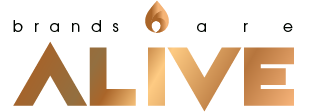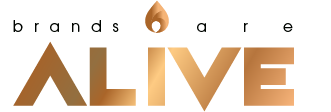SHUT OFF THE NOISE: How to tune out and listen to YOUR inner voice
How to untangle your mind and find your inner guidance
So much of what you think are your thoughts and desires aren’t actually yours. You go around all day collecting random bits of information from other people, and if you’re not careful, you’ll lose sight of what you think.
You look up something, and next thing you know, you’re reading 3 more articles that weren’t even that great. You go on Youtube to watch a video, and here you are scrolling the comment section, and checking out the umpteenth random video. You decide to only consume useful articles that *should* help you with your business, but instead, they're leaving you feeling paralyzed and overwhelmed because you just added more "shoulds" on your plate. This is where you know something has to change.
STEP 1:
- Go on a mental consumption diet: Eliminate or reduce input, even the positive.
Remove both physical and digital clutter. Your physical space should have no distractions. Your digital space should never pull your attention away either. Really, you want to be surrounded with as much emptiness as possible.
Turn off your notifications, and anything that hijacks your attention. Delete all the apps that you seem to be checking impulsively. Even the ones that you think you need, if you can check them from a different device. You need to create friction so the habit is harder to repeat on autopilot.
Elimination is actually easier than control. Just get rid of it. If you think you can’t, try it for 24 hours. You can always reinstall it if you change your mind.
Your brain (and whole body) is literally a biological machine.
Remember GIGO: Garbage in, Garbage out.
This is a slang expression in computer science. The idea is that regardless of how accurate a program's logic is, the results will be incorrect if the input is invalid. The same goes for your brain.
Just like the input affects the output of a computer, just like food you consume affects the output in your body, so does what you consume on a mental level.
Eliminating negative input, and reducing all input altogether (even the positive, but irrelevant input) will offload an insane amount of bandwidth. You won’t believe how much of your energy and brain power is wasted until you do this.
STEP 2:
- Eliminate energy drainers: Let go of any thoughts, activities, beliefs, behaviors, or even people that leave you feeling depleted, shrunk, down, etc.
This step might be the hardest part of the process, but it's crucial. If not possible, reduce contact, and create boundaries to protect your energy.
STEP 3:
- Do less, simplify your life
Now take things one step further and begin to sift through what is left on your plate, so you only keep what adds more energy, aliveness, and expansion.
Here, you are not only dropping energy drainers. You are also removing anything that isn’t necessarily exciting nor draining, but you think you have to do it, when you really don’t.
Why this matters: Because your energy is your most valuable resource. Why waste your life force when you can channel it elsewhere?
Practice improvement by subtraction. Instead of thinking “what else can I do/add to make this better”; ask: “what can I remove to improve this? What’s unnecessary?”
On this subject, I can recommend one of my favorite books called “Essentialism, The Disciplined Pursuit of Less”— by Greg McKeown.
After you’ve decided what to keep, ask yourself: How can I make this effortless?
We’ve been conditioned to think that everything should feel like grunt work and struggle, otherwise we’re not doing it right, or we’re not doing enough.
—
Look into the philosophy of “Wu-Wei” (effortless action of inaction).
Don’t worry if you don’t fully understand it. It’s said that if you think you understand Wu-Wei, then you really don’t.
In reference to the “action of inaction”, Wu-Wei isn't about avoiding action or being passive. It’s about getting into a state of flow and alignment with the natural world. It is the art of letting things happen.
If you observe HOW you do things, you will notice that so much of what you do is rooted in anxiety and discomfort with the idea of not “doing” something all the time.
So you plant the seed and water it. The next day, there is no sign of growth, and you start to poke at it and wonder what else needs to be done.
It's hard to keep watering when you have no reassurance from the outer world that it's working. So we often spend our energy wondering why the outer world is not cooperating with us. This focus on "what's wrong with what's outside of us" is a great way to avoid what is within our control. Because otherwise, we have to keep watering anyway, and that takes tremendous faith.
Lao Tzu said it better: “Nature does not hurry, yet all things are accomplished. The tighter we grasp the sand, the more sand falls through the hand”.
HOW TO PRIORITIZE WHAT TO ELIMINATE?
Always ask yourself if you love it first. What excites you? What energizes your soul and makes you feel more alive? This is the same concept that Marie Kondo uses in eliminating physical clutter, except you’re applying it to intangible things too.
Should you eliminate everything that drains you?
No, sometimes it’s a sign that something needs to be worked through. However, if you’ve done the inner work around it, and you truly don’t feel like you need to run away from it (resentment, judgment, anger, hurt, etc) — but you still feel anything less than excited and alive about it, then it may be time to let it go.
About: brands are alive is a transformational space for mindful & creative entrepreneurs and pathfinders who seek to build a brand of full self-expression and a business of passion, purpose, and (more) profit.
If you enjoyed this piece, join our newsletters for more
Every Saturday I send 1 actionable tip to uncover your Essence & build a brand that makes you feel alive.


0 comments
Leave a comment